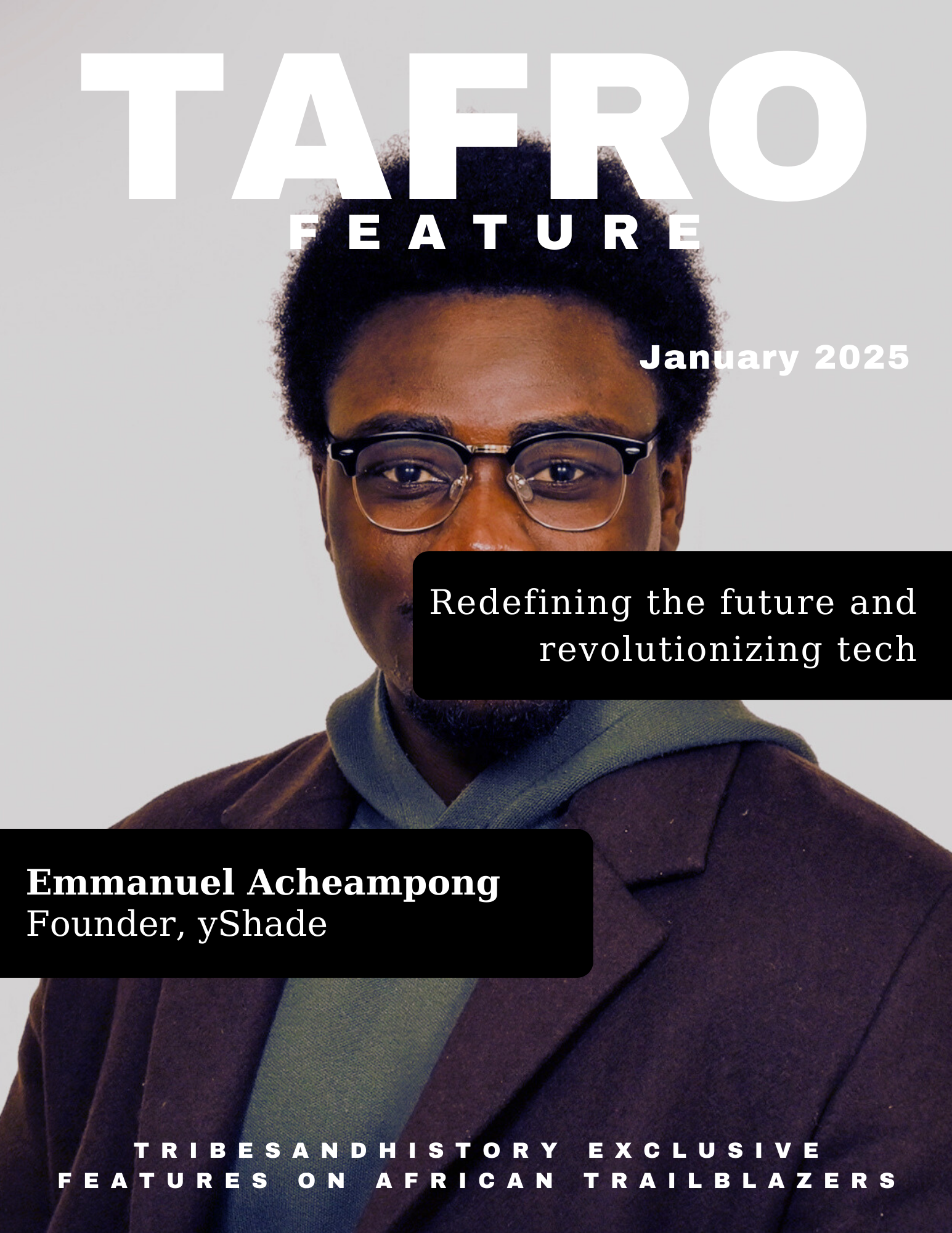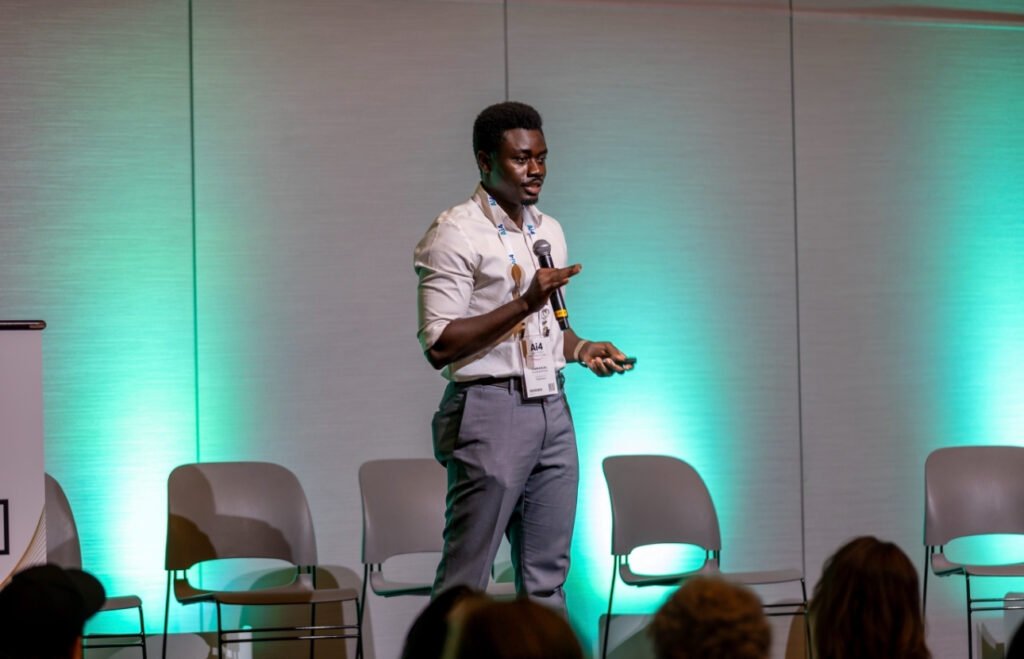
TribesAndHistory: What is your name, and how should we address you?
Emma: My name is Emmanuel Acheampong, and I’m the co-founder and Head of AI at yShade, formerly known as RoboMUA.
TribesAndHistory: What do you do?
Emma: Essentially, we build data. We create datasets and AI algorithms that reflect the real world, focusing on different skin shades. These algorithms are used in the fashion and beauty industries, helping people find the right makeup foundation and clothing recommendations, or even perfumes, through AI agents.
TribesAndHistory: What inspired you to start this company?
Emma: The inspiration for all of this came from seeing the struggles people, especially Black women, faced in finding the right foundation shade. Around 2018 or 2019, I realized I could leverage my AI skills to address this problem. That realization was the main driving force behind yShade.
TribesAndHistory: Can you share a pivotal moment in your career that significantly shaped who you are as a person and a leader?
Emma: One pivotal moment was during my undergraduate years. Back then, everyone was focused on traditional computer science paths—studying algorithms, preparing for coding challenges like LeetCode, and aiming for software engineering roles.
In 2016, I landed an internship at a small startup in New York. The CTO there, Peter, completely changed my career trajectory. He encouraged me to explore AI at a time when it wasn’t as mainstream as it is now. He introduced me to online courses and resources, essentially saying, “Forget software engineering—get into AI.” And he introduced me to a few online courses I can take to make the switch.
Peter’s advice led me to dive deep into the field, and it gave me a head start in understanding where technology was headed. Without that internship, I might have eventually found my way to AI, but Peter’s guidance accelerated my journey. He’s someone I’ll always be grateful to.
TribesAndHistory: So do you think is it correct to say that if you hadn’t done that internship, you probably have been in software engineering?
Emma: I would still eventually have gotten my way to AI. But Peter was the one who introduced me to it
TribesAndHistory: That’s amazing! Did he introduce you to Coursera since you are also an instructor on the platform? Did his guidance influence you in that area too?
Emma: Absolutely. Peter introduced me to online learning through platforms like Coursera, and as I took more courses and deepened my expertise, I eventually caught the attention of the Coursera team. They recognized my journey and invited me to share my knowledge as a subject matter expert.
If it hadn’t been for Peter, I wouldn’t have started down this path, and teaching on Coursera has been an incredible way to give back and share what I’ve learned.

TribesAndHistory: That’s amazing. Now how has your African heritage shaped your leadership, business, or career journey?
Emma: My heritage has had both positive and challenging influences. On the one hand, I was raised to be humble—“be seen and not heard,” as they say. While humility is a virtue, it was detrimental early in my career. In the tech and AI space, especially as a Black professional, you need to advocate for yourself.
If you’re too quiet, people might assume you’re not good enough or underestimate you entirely. I had to unlearn the idea that advocating for yourself isn’t humble. Humility doesn’t mean staying silent—it means being confident in your abilities without arrogance. As a techpreneur, you have to advocate for yourself. Especially when speaking with VCs. You have to convince people that you are the next big thing, and they would miss out by not investing in you. So I had to unlearn “hiding myself.”
On the positive side, my heritage instilled a relentless work ethic. No matter how difficult something is, I know I can achieve it with persistence. This mindset has been crucial in both navigating the complexities of AI and running a business.
TribesAndHistory: That’s powerful. You really do have to “toot your own horn.” What legacy do you hope to leave for the next generation of Africans?
Emma: I want to inspire more Africans and Black people to get into AI. That’s why I share my journey on platforms like LinkedIn—not for personal attention, but to show others that it’s possible.
I want someone to look at my story and think, “If he can do it, so can I.” At the end of my life, if someone tells me they entered the field because of my influence, that would mean everything to me. It would put a big smile on my face.
TribesAndHistory: Would you consider starting a nonprofit to help Black people get into AI?
Emma: I’m not sure about starting one myself, but I’d definitely join an existing nonprofit that aligns with that mission. I already work with African groups to provide free access to the courses I teach and participate in conferences where I can share knowledge. If a nonprofit needs technical leadership or curriculum development, I’d be happy to contribute.
TribesAndHistory: What about your heritage makes you proud?
Emma: So many things! One of the most fascinating is our languages. African languages are often not derivatives of other languages—they’re direct links to our ancestors. For example, languages like Twi are largely unchanged from what was spoken centuries ago.
Unlike English, which evolved from Latin and other influences, these languages have retained their essence. That’s something incredibly unique and precious.
I’m also proud of the resilience and industrious spirit ingrained in our culture. No matter what challenges life throws, there’s an underlying belief that we’ll find a way to succeed.
TribesAndHistory: I didn’t know that about African languages—fascinating! Any final words of wisdom?
Emma: I think what TribesAndHistory is doing is amazing. Preserving African history and culture is vital, especially as we adopt more advanced technologies. AI can play a crucial role in this preservation, ensuring that while we embrace modernity, we don’t lose our roots. The future of African storytelling and culture is bright, and I’m excited to see how platforms like TribesAndHistory lead the way.